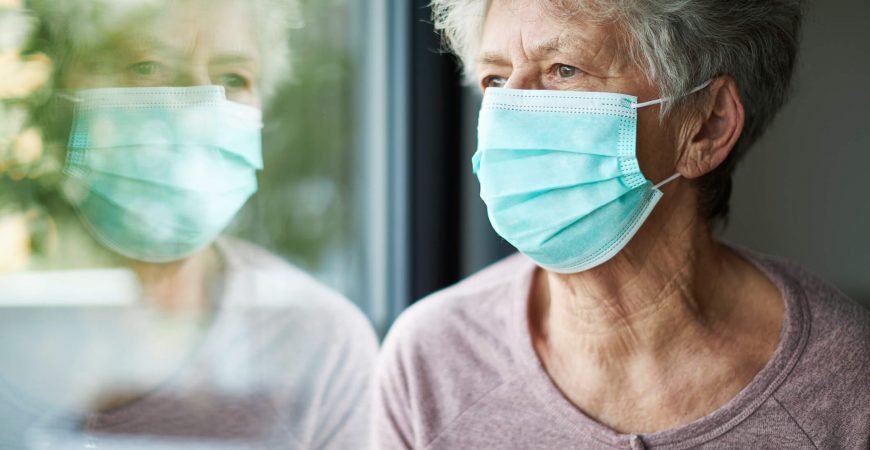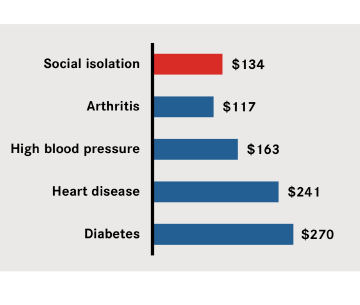Social isolation has been defined as a lack of meaningful connections with other people. You may have noticed the use of this term more frequently when addressing Medicare and the health and wellbeing of seniors and addressing social isolation is being strongly considered now in the development of person-centric care plans. Here are some of the reasons it’s becoming a focal point:
In a recent NIH report, the organization pronounces social isolation and loneliness in older people as a threat that poses health risks.
Dr. Steve Cole of NIH identifies risk factors in his article, “Understanding the Biology of Loneliness”:
Loneliness acts as a fertilizer for other diseases.
The biology of loneliness can:
- accelerate the buildup of plaque in arteries.
- help cancer cells grow and spread.
- promote inflammation in the brain leading to Alzheimer’s disease.
The CDC’s recent study on the same topic revealed that elders who experience social isolation have a 50% higher risk of dementia and other serious medical conditions than those who do not. They also stressed the importance of the health care system’s interventions as the main key to warding off social isolation and diminishing health concerns.
Naturally, seniors are more vulnerable to social isolation than other demographics. They are at an age where they are likely experiencing loss of siblings and friends. They experience more free time than their younger family members do and often times have excess time to fill. In addition, this is likely the age where people begin to experience health problems, which can be taxing.
Medicare is spending around $6.7 billion annually in costs stemming from social isolation. Take a look at the additional monthly costs to Medicare for a socially isolated enrollee and for an enrollee with selected chronic conditions:
Naturally, where spend is high – attention will follow. Many options are currently beginning to be explored and technology is one of them. While we never claim that assistive technology will take the place of loved ones, we do believe in its power to serve as a communication hub that helps to connect others and strengthen relationships.
An example of an assistive technology that is both simple to use and combats social isolation for the elderly is avatalk.
avatalk is a fun and engaging way for people to check in on their loved ones and share pictures, memories, artwork, messages and more! The device is kept in plain view, on a table or the person’s credenza, and relatives can snap photos and share moments – and immediately download it to the senior’s tablet. Ultimately the device becomes a virtual picture show and a hub for new media of any sort and keeps them entertained and abreast of the goings on within their families/friends. People in the senior’s life can also utilize the quick-and-easy check-in system avatar offers: simply ask any question with 6 answers or less via text – and it will interrupt the slideshow and pop up as a talking avatar on their device, ask the question, and provide the answers in button form so that they can response quickly and easily.
While care providers are also using avatalk as a way to bridge any gaps in remote monitoring and doing additional check-ins – many are getting comfortable utilizing avatalk and using the picture show platform to announce special events and share special messages and positivity; enhancing its purpose as a focal point in the home.
It is important that we not forget the mental health of our aging parents, friends and relatives as a key factor in their physical health and devote time to their happiness while still maintaining some presence in their lives when we are unable to be there in-person. Assistive technology provides a solution that everyone can use – and actually enjoy!
Until next time…stay safe and healthy!

